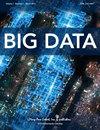Balancing Protection and Quality in Big Data Analytics Pipelines.
IF 2.6
4区 计算机科学
Q2 COMPUTER SCIENCE, INTERDISCIPLINARY APPLICATIONS
引用次数: 0
Abstract
Existing data engine implementations do not properly manage the conflict between the need of protecting and sharing data, which is hampering the spread of big data applications and limiting their impact. These two requirements have often been studied and defined independently, leading to a conceptual and technological misalignment. This article presents the architecture and technical implementation of a data engine addressing this conflict by integrating a new governance solution based on access control within a big data analytics pipeline. Our data engine enriches traditional components for data governance with an access control system that enforces access to data in a big data environment based on data transformations. Data are then used along the pipeline only after sanitization, protecting sensitive attributes before their usage, in an effort to facilitate the balance between protection and quality. The solution was tested in a real-world smart city scenario using the data of the Oslo city transportation system. Specifically, we compared the different predictive models trained with the data views obtained by applying the secure transformations required by different user roles to the same data set. The results show that the predictive models, built on data manipulated according to access control policies, are still effective.在大数据分析管道中平衡保护与质量。
现有的数据引擎实施方案没有妥善处理数据保护需求与数据共享需求之间的冲突,这阻碍了大数据应用的推广并限制了其影响力。这两种需求往往是独立研究和定义的,导致概念和技术上的错位。本文介绍了数据引擎的架构和技术实现,通过在大数据分析管道中集成基于访问控制的新治理解决方案来解决这一矛盾。我们的数据引擎利用访问控制系统丰富了数据治理的传统组件,该系统可根据数据转换在大数据环境中强制访问数据。数据只有在经过净化后才能在管道中使用,在使用前保护敏感属性,以促进保护和质量之间的平衡。我们利用奥斯陆城市交通系统的数据,在现实世界的智慧城市场景中对该解决方案进行了测试。具体来说,我们比较了通过对同一数据集应用不同用户角色所需的安全转换而获得的数据视图所训练的不同预测模型。结果表明,根据访问控制策略对数据进行处理后建立的预测模型仍然有效。
本文章由计算机程序翻译,如有差异,请以英文原文为准。
求助全文
约1分钟内获得全文
求助全文
来源期刊

Big Data
COMPUTER SCIENCE, INTERDISCIPLINARY APPLICATIONS-COMPUTER SCIENCE, THEORY & METHODS
CiteScore
9.10
自引率
2.20%
发文量
60
期刊介绍:
Big Data is the leading peer-reviewed journal covering the challenges and opportunities in collecting, analyzing, and disseminating vast amounts of data. The Journal addresses questions surrounding this powerful and growing field of data science and facilitates the efforts of researchers, business managers, analysts, developers, data scientists, physicists, statisticians, infrastructure developers, academics, and policymakers to improve operations, profitability, and communications within their businesses and institutions.
Spanning a broad array of disciplines focusing on novel big data technologies, policies, and innovations, the Journal brings together the community to address current challenges and enforce effective efforts to organize, store, disseminate, protect, manipulate, and, most importantly, find the most effective strategies to make this incredible amount of information work to benefit society, industry, academia, and government.
Big Data coverage includes:
Big data industry standards,
New technologies being developed specifically for big data,
Data acquisition, cleaning, distribution, and best practices,
Data protection, privacy, and policy,
Business interests from research to product,
The changing role of business intelligence,
Visualization and design principles of big data infrastructures,
Physical interfaces and robotics,
Social networking advantages for Facebook, Twitter, Amazon, Google, etc,
Opportunities around big data and how companies can harness it to their advantage.
 求助内容:
求助内容: 应助结果提醒方式:
应助结果提醒方式:


